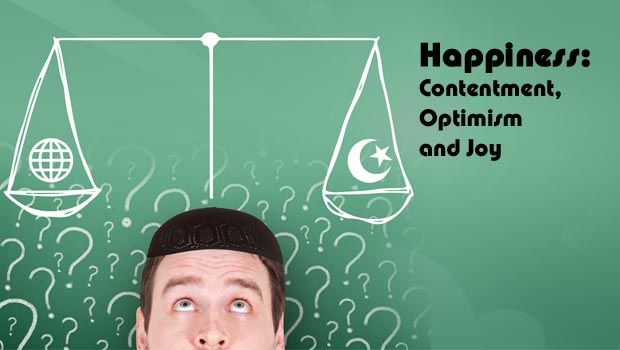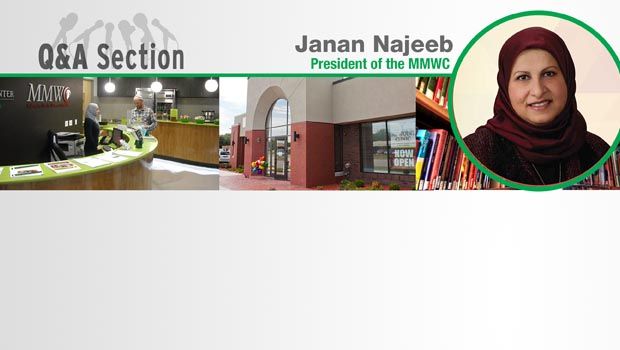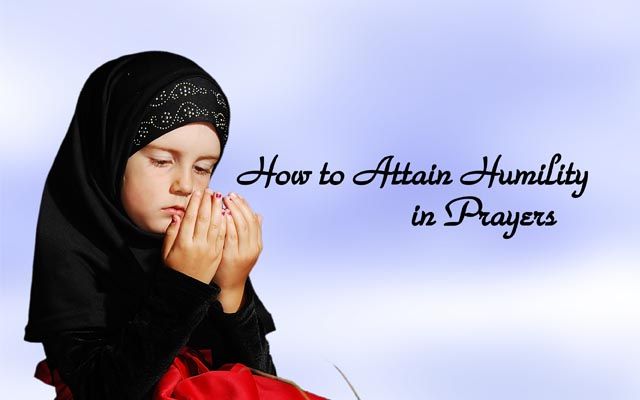Life today is stressful and statistics clearly show that people are not coping well, with all the indices of unhappiness sky-high. As of 2010, 36 percent of Americans were obese, as noted in the American Journal of Preventive Medicine. More than 21 percent of Americans take anti-depressants, according to a report by the National Center for Health Statistics, up by almost 400% between 1988–1994 and 2005–2008. According to a survey from the APA, 33 percent of American workers experience chronic stress related to work. And a study published in the Journal of Clinical Investigation found that “chronic stress plays a significant role in cancer progression.” Data shows that roughly 28 percent of American adults drink enough that they are at risk for dependence on or excessive use of alcohol. According to the American Journal of Public Heath, suicide is now the number one cause of “injury death” in the U.S.
With an optimistic outlook, the believer also appreciates that adversity might in the long run benefit him (see 2:216) and believes during times of difficulty that relief will come (see 94:05).
Don’t feel gloomy, though, because this article will argue that happiness is not a mood and it is not dependent on external circumstances. It is more a spiritual approach to life and a deliberate, chosen mindset that facilitates, feeds, and enhances the feeling of positive and enjoyable well-being moment to moment. Some may think “Well, who said we are meant to be happy in this life?” The Prophet pbuh said,”The most beloved of people to Allah is he who brings most benefit [to others], and the most beloved of deeds according to Allah SWT is that you bring happiness to a fellow Muslim …” (Al-Tabarani).
We are meant to be happy! But that doesn’t mean that happiness is a constant state. Sadness, disappointment, loss, regret – these are all part of the human condition and provide the tests for each believer’s eman: “Do the people think that they will be left to say, ‘We believe,’ without being put to the test? We have tested those before them, for Allah will most certainly ascertain those who spoke the truth and those who lied” (Qur’an 29:2-3). Yet, there are those with a fundamental disposition of unhappiness, despondency, and gloominess. In contrast is the individual with a baseline of happiness, who responds with faith and resiliency to the tests, challenges, and traumas, and does not rely on fortunate circumstance to claim happy moments.
If we are failing to live in the present moment, we are dwelling instead on the past or projecting ourselves into the future
Studies show, according to the Mayo Clinic, that “Only 10 percent or so of the variation in people’s reports of happiness can be explained by differences in their circumstances. It appears that the bulk of what determines happiness is due to personality and — more importantly — thoughts and behaviors that can be changed.” That’s good news, because many people, like the malcontent, dwell on negative things, especially the adverse experiences that happened in their past. Psychology calls this “ruminating,” which in a straight dictionary sense means “thinking, or pondering, or mulling over.” A cow is one of the cud-chewing animals called a “ruminant,” which regurgitates its food from the stomach to the mouth to be chewed again — a fit description of a person who is “ruminating,” in the vernacular of psychology, i.e., running negative thoughts through the mind again and again, mentally regurgitating them to brood repeatedly on the emotional wounds, injustices, and resentments of the past.
If we are failing to live in the present moment, we are dwelling instead on the past or projecting ourselves into the future. When projecting into the future, often this is a focus on fearing adversity that might happen and the anxiety that brings. Living in the present, however, keeping our awareness and focus on the moment that is now before us, is a steward of happiness. Through this focal point, there are countless opportunities to ferret out or create happiness, and this capacity surmounts the torments of life — the multifarious difficulties, sorrows, and worries. It’s like finding a space between the grief (of the past) and the anxiety (as to the future), a place that obtains, even if for just moments at a time, the feeling of equanimity. The Prophet pbuh recommended, as part of a longer hadith, that we make du’a saying, “O Allah, I seek refuge in you from anxiety and grief” (Abu Dawood).
If we are seeking refuge in Allah SWT from the grief of the past and the anxiety associated with the future, then we are living principally in the present moment, in the sweet spot of equanimity, where happiness abides. A good case can be made that happiness consists of contentment, optimism, and joy — and that contentment pertains primarily to the past, optimism to the future, and joy to the present.
Contentment (pertaining to the past)
“…Truly, it is in the remembrance of Allah that hearts find contentment” (Qur’an 13:28). Remembrance of Allah SWT encompasses many things: believing in the Divine plan, putting one’s trust in God, abiding by His commands, and accepting with conviction and grace His decree in one’s own life. This includes graciously accepting one’s existing condition as it has unfolded from the past. Being content is being satisfied with whatever Allah SWT has provided, whether good fortune or bad, easefulness or difficulty, abundance or scarcity. “The happiness of the son of Adam depends on his being content with what Allah has decreed for him … and the misery of the son of Adam results from his discontent with what Allah has decreed for him” (Al-Tirmidhi). The perspective of a believer with regard to the decree of Allah SWT and whatever adversity and suffering is within that decree, is the following:
- Human beings are tested while on this earth; it is how we respond to those tests which helps to make the heart pure and sound or, conversely, hardens the heart.
- We seek the guidance of Allah SWT and believe Him when He says that if we follow His guidance, we will overcome grief and anxiety.
- We strengthen our belief that in following Allah’s guidance we will ultimately attain to an inward condition of ease, despite whatever external circumstances are prevailing.
- We believe that the final condition of the true believer is a place of complete happiness, comfort, and satisfaction, and we strive to attain to that state while still in this dunya; this state is “tubaa,” which is often translated as “every blessedness” (see Qur’an 13:28-29). It is an internal state of satisfaction and joy, peace of mind, tranquility of heart, and serenity of conscience.”
If we pledge ourselves to the above principles of contentment with the decree of Allah SWT, then we will feel satisfied and accepting of what we are and what we have and what we are dealing with at this moment of life. This is in contrast to the malcontent who says “Woe is me…” in a hundred different ways: “Why me?” “If only I had done this or that!” “If only I were smarter.” “I knew this [horrible thing] was going to happen to me.” The list of statements is endless because the malcontented person finds so much to complain about, to be displeased with, to be disturbed by. On the other hand, the individual who chooses contentment finds benefits and blessings even in the greatest hardship. illustrating this mindset is the profound statement of Imam Ibn Taymiyyah: “I have in my breast both my heaven and my garden. If I travel they are with me, never leaving me. Imprisonment for me is a chance to be alone with my Lord. To be killed is martyrdom, and to be exiled from my land is a spiritual journey.”
Being contented with the decree of Allah is far different from being passive, given to resignation, and/or lazy. Contentedness is not fatalistic.
Being contented with the decree of Allah is far different from being passive, given to resignation, and/or lazy. Contentedness is not fatalistic. It is accepting and being fully present where and how and why and what we are right now, and finding so much to be grateful for. Then we can aspire, with liberated energies, for greater good in our relationships with Allah SWT, with self, and with others, all precedents to happiness. Thus, aspiring is not contradictory to contentedness, but emerges out of it.
Being content is being poised (balanced) in that place between grief and anxiety. It is also balanced in another way: living daily life with a proper, fair, proportional arrangement of activities and responsibilities so that one important aspect of life is not neglected for another. If a man spends all his time working and by doing so neglects his wife and children, then his life is imbalanced and this leads to unhappiness in his life as well as in the lives of his family members. If a woman spends all her time cooking and cleaning and by doing so neglects her religious duties, then her life is imbalanced and this leads to unhappiness in her life as well as in the lives of her family members.
In that space between grief and anxiety, we institute balance in our daily living and experience a richness of life, moment to moment. “We have made you a nation justly balanced…” (Qur’an 2:143). And the Prophet pbuh said,”Riches does not mean having a great amount of property; riches is self-contentment” (Bukhari). We are content with our present circumstance as it has unfolded from the past, but invigorated to correct mistakes, face our issues, and better ourselves. Choosing to be content is like implanting roots deep into the ground of one’s existence, anchoring the self in the reality of one’s life, and from that starting point seeking out what can nourish and satisfy the soul.
Optimism (pertaining to the future)
Optimism has root meanings of “the greatest good,” “the best” and “choice.” So we can say that an optimistic outlook on life is always keeping one’s eye on that which advances goodness, and this is conjoined to making the best choices in all one’s affairs, choices that will, in fact, bring about the greatest good each and every day. Thus, optimism is not a naive and shallow form of positive thinking. It is a deliberate way of looking at the world and viewing the future that rests upon intentional, prudent, and salutary choices. It is recognizing opportunity for betterment, whether in ease or difficulty. Winston Churchill once said, “A pessimist sees the difficulty in every opportunity; an optimist sees the opportunity in every difficulty.”
Consider this verse, “….Verily never will Allah change the condition of a people until they change what is in themselves….” (Qur’an 13:11). Shaikh Syed Qutb says about this verse in the “Shade of the Qur’an” that the change this verse refers to is made in the human heart, intention, attitude, and behavior. He points out that this is a high honor from Allah SWT that He has tied His qadar, Divine Destiny, to the choices that a human being makes, which in essence, is choosing his or her destiny. So the optimistic aspect of being happy is looking toward the greatest good, whether in one’s daily life or in the reward of the Hereafter, and knowing that we are given opportunity at every moment to make the best choice and to accept the decree of Allah no matter the outcome: “How wonderful is the affair of the believer, for all his affairs are good for him, and that does not apply to anyone but the believer. If something pleasing happens to him, he is grateful, and that is good for him; and if something harmful happens to him, he bears it with patience, and that is good for him” (Muslim). With an optimistic outlook, the believer also appreciates that adversity might in the long run benefit him (see 2:216) and believes during times of difficulty that relief will come (see 94:05). Islamic teachings give us consummate reason for taking an optimistic view of existing events or conditions and generally expecting a favorable outcome in any given situation, and in the totality of our lives and the reward in the Hereafter.
Another reason for optimism is knowing that Allah’s mercy is wondrous. The Prophet pbuh, said, “When Allah decreed the Creation, He pledged Himself by writing in His book which is laid down with Him: ‘My mercy prevails over my wrath’”
Another reason for optimism is knowing that Allah’s mercy is wondrous. The Prophet pbuh, said, “When Allah decreed the Creation, He pledged Himself by writing in His book which is laid down with Him: ‘My mercy prevails over my wrath’” (Bukhari, Muslim, and others). Also, Anas said, “I heard the Messenger of Allah say, Allah Almighty says, ‘O son of Adam! I will forgive you as long as you call on Me and have hope in Me, no matter what you do. Son of Adam, I do not care if your wrong actions reach to the clouds of heaven and then you ask Me for forgiveness, I will forgive you. Son of Adam, if you were to come with sins equivalent in weight to the whole earth and then meet Me having not associated anything with Me, I would come to you with the same amount of forgiveness’” (Al-Tirmidhi). Even if our sins were to “reach to the clouds” or be as weighty as “the whole earth,” Allah SWT offers His mercy and forgiveness equal to that! “Say – in the bounty of Allah, and in His mercy – in that let them rejoice …” (Qur’an 10:58).
If contentedness is like the firmly fixed root structure of a tree, optimism can be compared to the branches — limbs reaching toward the heavens as the soul strives for ever higher goodness and excellence.
We can now consider the aspect of happiness that pertains to the present— joy.
Joy (pertaining to the present)
Joy is a state of consciousness, as noted by Todd Kashdan, professor at George Mason University, that finds“…beauty and intrigue around us everywhere – as long as we’re open to what’s around us.” With a heightened sense of the present moment, keen attention to detail, getting lost in the “flow,” joy is a dynamic state of wakefulness and excitement and appreciation for whatever one is experiencing, witnessing, endeavoring, or accomplishing. It might be a moment of loving communication with one’s child; watching the sun set over a placid lake; awakening at dawn, putting on jogging shoes and moving into the world of nature and physical fitness; a “voila” moment for a tech person when an elusive computer algorithm finally takes shape in his mind. It might simply be a moment when one is filled with illuminating quietude as flickering intervals of sunlight hide and appear, again and again, among pale green tints of the giant oak newly in leaf, as the freshness of morning announces its springtime delight.
The capacity for joy, without doubt, can be cultivated. It’s a shame that so much focus is on treating depression with pharmaceuticals rather than on encouraging and teaching people how to be joyful. According to an article by Trish Hall, Op-Ed editor for the New York Times, “…psychology journals have published 45,000 articles in the last 30 years on depression, but only 400 on joy.”
Joy involves one’s approach to, perception of, and experience in the present. Many think that they will be happy and enjoy life at some hypothetical time in the future, when they get that promotion, go on vacation, pay off all their debt, graduate, get married, lose weight, buy new clothes, and on an on. Yet, Muslims are advised to find joy in the bounty of Allah, which is in the here and now. Consider the verse quoted above about rejoicing in Allah’s mercy: “Say – in the bounty of Allah and in His mercy – in that let them rejoice – that is better than what they hoard” (Qur’an 10:58). To rejoice is “to be joyful (to experience gladness in a high degree; to have pleasurable satisfaction; to be delighted.”) The verse tells us that finding joy in the bounty of Allah and in His mercy is far better than pursuing joy in the things that humans typically seek to acquire — the material things of this world, or to achieve — prestige or power.
What are the bounties of Allah? All the extraordinary and wondrous objects, properties, processes, phenomena, organisms, creatures, functions, qualities, and so on, that we find in life, nature, the world, and the human condition. Many bounties are pointed to in the Qur’an—the expanse of the earth with its pastures, mountains, and deserts; grains and fruits; health and healing; rain and flowing water; seeds that germinate and grow; language, communication, and guidance; day for gaining livelihood and night for resting; the sun and shadows; kinship and friendship; reason, intuition, and knowledge; striving, meaning, and purpose; free will, consciousness, and creativity; yearning and fulfillment; kindness, gentleness, and compassion. Truly, a multitude of things… but “if you try to count the bounties of Allah, never will you be able to number them” (Qur’an 14:34). How often do we stop and contemplate the beauty, the order and proportion, the small things and fleeting moments that have potential for joy but are so often overlooked? Imagine if more people put “be joyful” on their list of things to accomplish?
Further, an abundant other realm of joy opens when an individual has chosen to become a devotee to a refinement, in its various aspects, of the self, including:
- Purification — “By the soul and the proportion and order given to it, and its enlightenment as to its wrong and its right, truly he succeeds who purifies it and he fails who corrupts it” (Qur’an 91:7-10).
- Transformation —“Verily, God does not change the condition of a people until they change what is in themselves” (Quran 13:11) and “You shall surely travel from stage to stage” (Qur’an 84:19).
- Enrichment of the self —“True richness is the richness of the self” (Bukhari and Muslim).
- Liberation —“Each day a man is a vendor of his soul, either freeing it or bringing it to ruin (Muslim).
Devotion to the purification, transformation, enrichment, and liberation of the self is catalyst to all the excellent character traits of ihsan, including the intentional cultivation of balance in all things, and following a middle course between extremes. Muslims are called “ummat-al-wasat,” community of the middle way. “We made you to be a community of the middle way, so that [with the example of your lives] you might bear witness to the truth before all humankind” (Qur’an, 2:143). The middle way, for example, is being generous rather than stingy or extravagant, the two opposing extremes. Or being humble rather than self-abasing or self-glorifying. Or being nurturing to one’s children rather than withholding and harsh or overly indulgent and permissive. Even with regard to the practice of religion, the Prophet cautioned against excessiveness. He once said to Abdullah ibn ‘Amr: “Have I heard right that you fast every day and stand in prayer all night?” Abdullah replied, “Yes, 0 Messenger of God.” The Prophet said, “Do not do that. Fast as well as eat and drink. Stand in prayer as well as sleep. This is because your body has a right upon you, your eyes have a right upon you, your wife has a right upon you, and your guest has a right upon you” (Bukhari, Muslim).
Allah SWT has intended for us a full, rich, life. “O children of Adam! Wear your beautiful apparel at every time and place of prayer. Eat and drink but waste not by excess, for Allah loves not wasters. Say: ‘who has forbidden the beautiful gifts of Allah which He has produced for His servants and the things clean and pure which He has provided for sustenance…” (Qur’an 7:31-32). And further, our lives are to be filled with joy. “For those who believe and work righteousness, is happiness and joy, and bliss at [their] journey’s end” (Qur’an 13:29). One of the salaf (righteous predecessors) is reported to have said, “There are moments that I say to myself, ‘truly if the people of Paradise feel what I feel here on earth, they indeed live a good and joyous life.’”
Yes, each day is a new journey, a new opportunity to find joy in the bounties of Allah SWT: in His creation, in the camaraderie of social relations, in the diversion of recreation and relaxation, and in the devotion and striving for purification, transformation, enrichment, and liberation of the self. Joy is like the fruit of one’s primal, animate being made intentional, mindful, awe-inspired, and passionate for truth, beauty, and righteousness.
The Wellspring of Happiness
Anchoring the self with the deep roots of contentment, striving each day with life and limb and inveterate optimism, and discovering the fruits of joy in the promise of Allah SWT, in the creation, and in one’s own self: that is engaging ourselves to the wellsprings of happiness. It is like cultivating “in my breast both my heaven and my garden,” taking into the personal sanctum of the heart — absorbing into the rich loam of the soul — the germinating words of Divine guidance and wisdom, and watching a goodly tree grow.
“Have you not seen how God sets forth a similitude? A good word is as a good tree — its roots are firmly fixed, with its branches reaching upward to heaven” (Qur’an 14:24).





